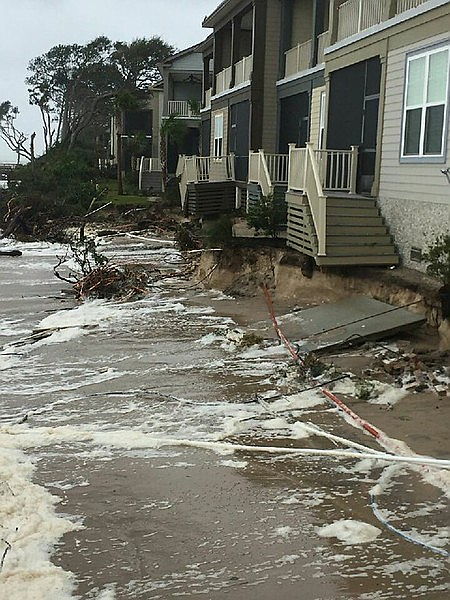Electronic waste, material recovery, and the clean energy transition
Based on reports by Environmental Resources Management [ERM], consultants. See www.erm.com
The use of and demand for electronics has reached unprecedented levels, propelled by new technologies, intensified reliance on communication infrastructure, and the pressing need for clean energy sources, including upgrades in energy storage and grid transmission. It has been estimated that growth in demand for strategic materials needed to meet these needs will require a production increase of some 400% within a decade, especially critical due to the urgency of rapidly transitioning to clean energy as a means of curbing heat-trapping fossil-fuel emissions.
With accelerating reliance on electronic equipment, there’s been an enormous growth in electronic waste (“e-waste”). In the past e-waste has included computers, servers, monitors, tablets, printers, and cell phones. But with the spreading use of computer chips and electronic devices, this term now encompasses many more household and business products—appliances, toys, tools, audio-video gear, cars, etc. When the performance of these items are surpassed by newer technology, or when they fail, their useful life ends, converting them to e-waste.
“According to the 2020 UN Global E-waste Monitor, e-waste is the world’s largest waste stream globally, often contains materials that are toxic to human health and the environment, yet very little is being recycled. E-waste also contains extremely valuable materials, such as cobalt, lithium, palladium, copper, and gold,” with a lost value in many billions of dollars when not recovered through recycling.
| “The world generated 53.6 million metric tons of e-waste in 2019. Only 17.4% of that was recycled. The fraction not recycled (82.6%) represents $47 billion in lost value from materials that could have been recovered, including cobalt, palladium, copper, and other conflict minerals.” [ERM, 2022.] Sources: 2020 UN Global E-waste Monitor, GESP 2020 How E-waste Management Market Became a Highly Profitable Industry 2020: Revenue Analysis and Growth Opportunity, AP Newswire 2020 |
To the greatest extent possible, the demand for these critical materials must be extracted from the e-waste-stream rather than mining and processing them from deposits scattered around the world. Deriving such materials from e-waste will greatly reduce both environmental and financial costs by avoiding the disruptive, energy-intensive processes required to mine, refine and distribute them from new sources. Risky geo-political disputes may also be avoided.
Coastal Georgia is already encountering a unique opportunity in the emerging e-waste recovery industry with the recently announced location of Igneo Technologies, a New York-based e-waste recycling company, which will be opening its first U.S. electronics recycling facility in Savannah next year. This makes the assessment and control of e-waste recycling even more pertinent in our region, offering potential alignment between environmental and business interests.
Significant risks of e-waste
ERM warns that E-waste contains many toxic and hazardous materials, such as lead, mercury, per- and polyfluoroalkyl substances (PFAS), brominated flame retardants (BFR), chlorofluorocarbons (CFC), hydrochlorofluorocarbons (HCFC), and persistent organic pollutants. When e-waste is not recycled, these chemicals contaminate landfills, creating risks to water quality through leachate when disposal-linings leak, exposing land and wildlife to relate harms. Communities located near landfills are particularly susceptible to chemical exposures resulting from improper e-waste disposal. Environmental contamination from recycling operations is common, endangering human health in neighboring communities, often compounding long-suffered environmental injustices.
When recovering valuable materials from e-waste, the disassembly process presents the potential for worker exposure to airborne contaminants such as lead, mercury, and combustible dust, causing significant health risks. Following disassembly, the treatment of e-waste for recovering precious metals entails hazardous chemicals and high-risk methods, such as acid processing and smelting, creating risky working conditions.
Most e-waste treatment occurs in developing countries, which often lack the regulatory controls, safety infrastructure, and culture to keep their workers safe. Research by the World Health Organization identified associations between e-waste exposure and thyroid dysfunction, adverse birth outcomes, behavioral changes, decreased lung function, and adverse changes at the cellular level in children. For these reasons, it is critically important that science-based safeguards are reliably implemented and conditions are monitored to protect waste-recovery workers – in the U.S. and globally.
According to ERM, consumers and governments are increasing demands for business programs that accommodate product takeback and resource recovery. Some regions are seeing regulatory action on e-waste, such as the European Union’s recast of the Waste from Electrical and Electronic Equipment (WEEE) Directive. Many European businesses are committing to climate and zero-waste goals in response to shareholder and customer pressures, to enhance their corporate profile in achieving sustainable business outcomes. E-waste processing business is especially sensitive to factors such as regulation of working conditions and the environment, shifting market incentives, consumer preferences, and carbon-emission reduction goals, all of which are increasingly critical to profitability.
Achieving sustainability through responsible resource recovery
As the world transitions from a linear economy to a circular one, mining prime materials needed for electronics is unsustainable for business and intolerable for our already overburdened ecosystems. While the technology for efficiently recovering and recycling key components is still developing, more companies are investing in recovery and recycling technologies, because doing so contributes to their emerging bottom line. Capturing the value from existing e-waste will save billions in material costs and significantly reduce adverse environmental impacts. Companies need to discuss how to ensure that resource recovery from e-waste is applied as a strategic business advantage in the transition to a circular economy.
Those business that succeed in resource recovery methods will not only become major leaders in sustainability, but they will also have the potential to realize cost savings by tapping into the growing e-waste market, predicted to reach $102.62 billion by 2027, according to AP Newswire (2020).
ERM advises that the approach must be two-pronged: (1) understand and mitigate the risks associated with current e-waste processing methods, and (2) harness the value of the circular economy transition through product redesign and reuse of valuable materials.
By diligently adopting these goals and also making the important commitment to implementing a clean-energy transition, Georgia can become a leader in advancing a sustainable future.





